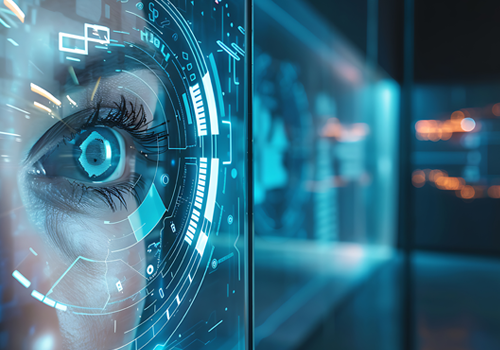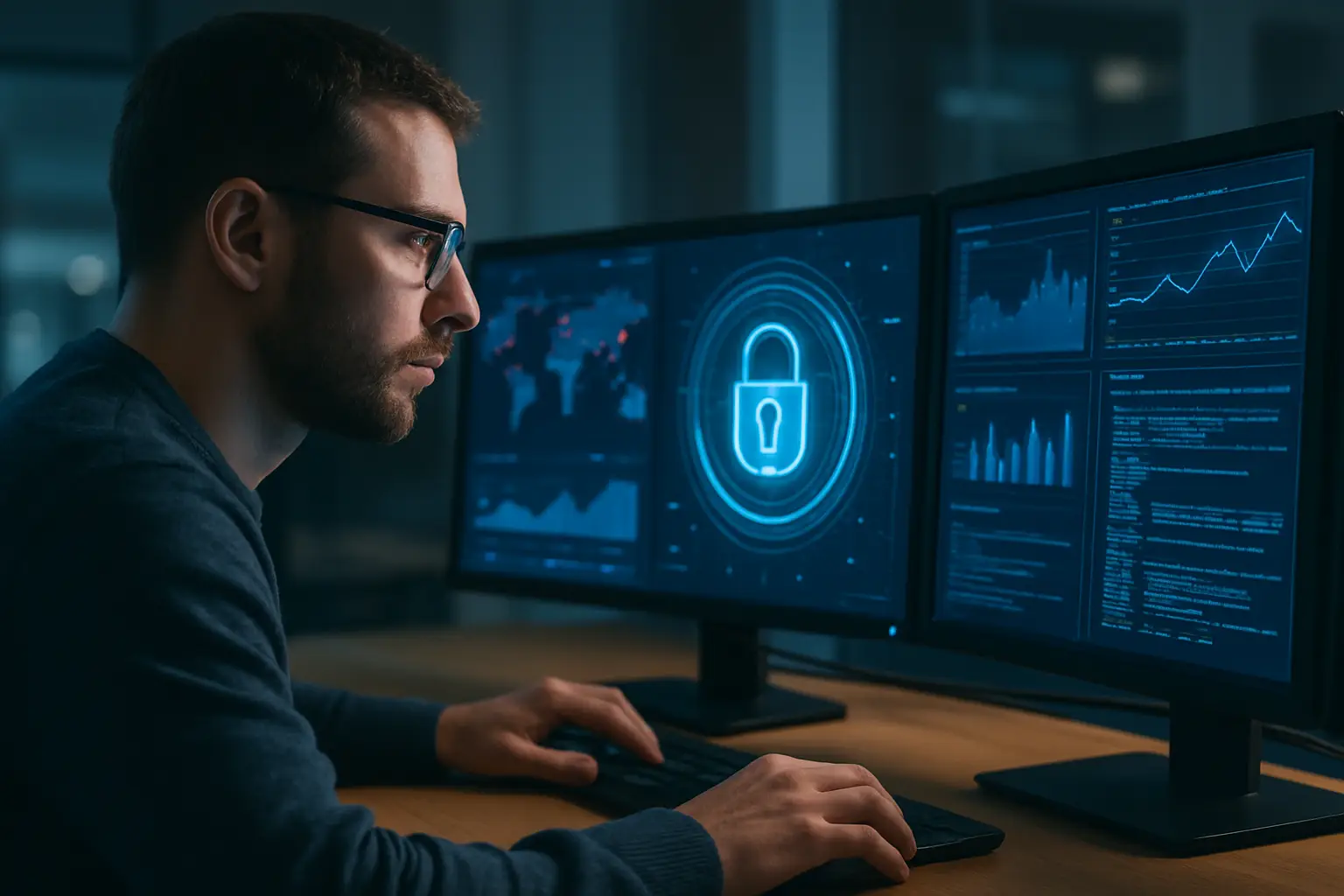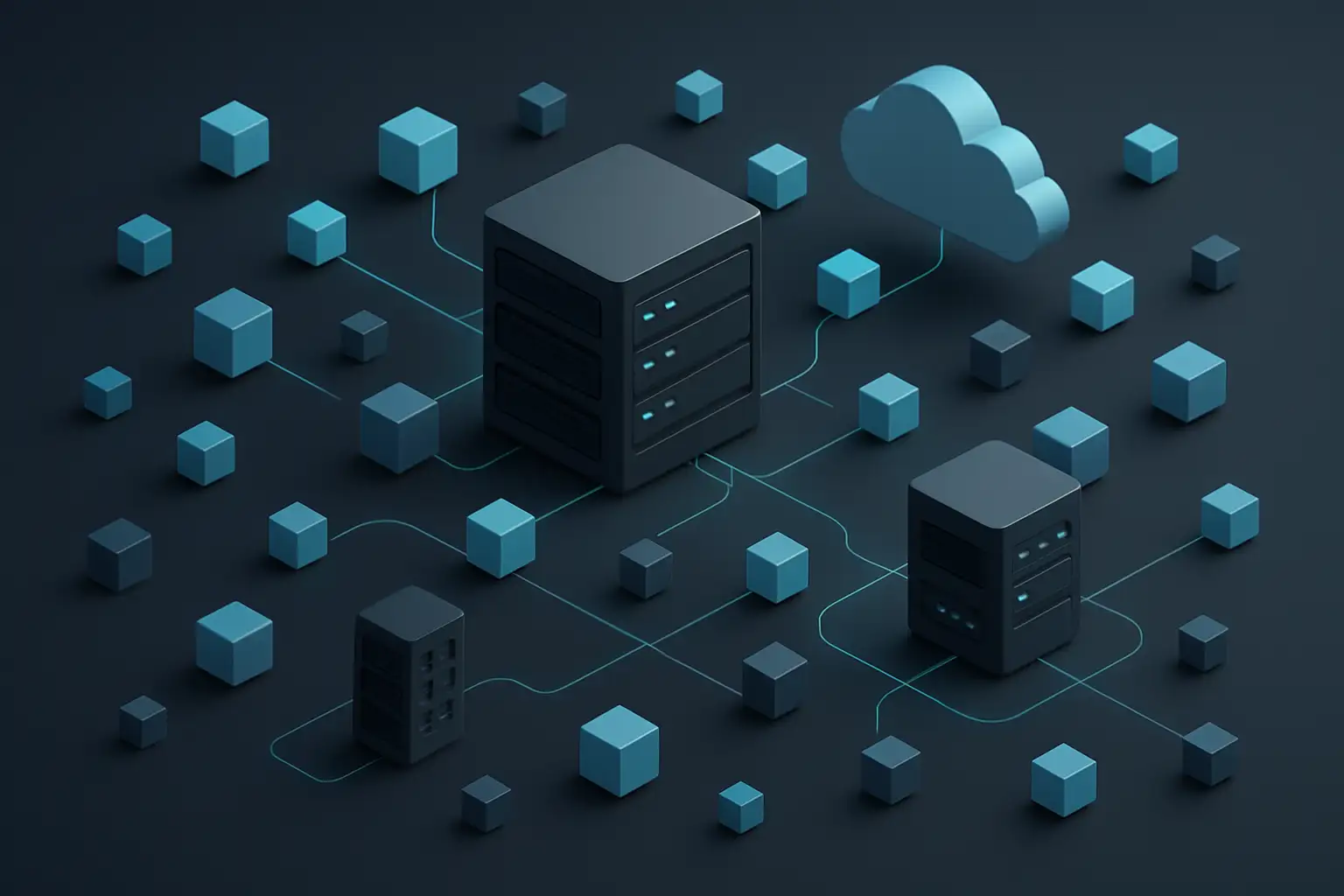Businesses in the UK are turning to computer vision to improve how they operate, cut costs, and make processes faster and more accurate. From automated inspections to real-time safety monitoring, computer vision services are proving useful in reducing manual effort and improving decision-making.
Whether it’s a manufacturing unit in Birmingham or a logistics firm in London, using computer vision is becoming essential for staying efficient and competitive.
What Is Computer Vision?
Computer vision is a branch of artificial intelligence that enables machines to interpret and act on visual data from the world. It allows systems to process, analyze, and understand images or videos in real time, often faster and more accurately than humans.
A reliable computer vision company offers solutions such as object detection, facial recognition, image classification, quality inspection, and real-time surveillance—all aimed at improving business processes.
How Computer Vision Services Improve Operational Efficiency
1. Automated Quality Control
Manual inspection is not only time-consuming but also prone to human error. Computer vision services enable real-time defect detection and quality assurance in manufacturing and packaging. This reduces downtime and minimizes wastage, ensuring high product standards without increasing manpower.
2. Faster Data Processing
Visual data, such as surveillance footage or scanned documents, can be instantly analyzed through computer vision systems. This drastically reduces the time spent on repetitive tasks like invoice verification, inventory tracking, and identity authentication.
3. Enhanced Workplace Safety
By monitoring employee behavior and environmental hazards, computer vision can identify safety risks and alert supervisors in real-time. For UK industries with strict compliance regulations—like construction, mining, and utilities—this not only saves lives but reduces liability costs.
4. Smart Inventory Management
Retailers and logistics firms benefit from computer vision in tracking stock levels, monitoring shelf conditions, and managing supply chains. Real-time visual analysis ensures stock accuracy, faster restocking, and fewer delivery delays—boosting operational performance.
Reducing Costs with Computer Vision Consulting
Working with a professional computer vision consulting partner helps businesses build tailored solutions aligned with their industry needs and budget. Here’s how expert consulting contributes to cost reduction:
- Lower Labour Costs: Automation reduces the need for manual labor in repetitive tasks.
- Predictive Maintenance: Early identification of equipment failures reduces repair expenses.
- Operational Transparency: Visual analytics provide better insights for decision-making, reducing inefficiencies.
- Fraud Prevention: Vision-based systems in banking and e-commerce detect suspicious behavior, helping prevent financial loss.
Industries Benefiting from Computer Vision in the UK
Computer vision is making a strong impact across a wide range of industries in the UK. From traditional manufacturing to cutting-edge healthcare, here’s how various sectors are using this technology to streamline operations and save costs.
- Manufacturing and Industrial Automation
UK manufacturing companies are leveraging computer vision to automate quality inspection, monitor assembly lines, and reduce product defects. High-resolution cameras combined with AI models can detect minute flaws in products faster than human inspectors.
Key Benefits:
- Real-time quality control
- Reduced scrap and rework
- Lower operational downtime
- Predictive maintenance to prevent equipment failures
Example Use Case:
An automotive parts manufacturer in the Midlands uses computer vision systems to detect micro-cracks in engine components, ensuring product reliability and reducing warranty claims.
2. Retail and E-commerce
Retailers are using computer vision to understand customer behavior, monitor store traffic, and manage inventory. Vision-based shelf monitoring helps retailers restock items before they run out, improving customer satisfaction.
Key Benefits:
- Smart inventory and shelf management
- Theft prevention through surveillance analytics
- Improved store layout planning via heatmaps
- Automated checkout systems using image recognition
Example Use Case:
A UK-based grocery chain uses smart cameras to track real-time stock levels on shelves, reducing out-of-stock situations and improving sales performance.
- Healthcare and Life Sciences
In healthcare, computer vision is helping doctors and researchers analyze medical images like X-rays, MRIs, and CT scans with more accuracy and speed. It’s also being used in hospitals for patient monitoring and fall detection.
Key Benefits:
- Faster and more accurate diagnoses
- Reduced diagnostic errors
- Real-time patient monitoring in ICUs
- Efficient hospital resource planning
Example Use Case:
A London-based hospital uses AI-powered vision systems to detect early signs of pneumonia from chest X-rays, allowing faster intervention and reduced ICU costs.
- Transportation and Logistics
Computer vision helps optimize routes, manage fleet movements, and improve driver safety. In warehouses, it automates package sorting, inventory tracking, and barcode scanning.
Key Benefits:
- Automated vehicle monitoring
- Real-time traffic and parking analysis
- Enhanced cargo security
- Reduced manual handling costs
Example Use Case:
A logistics company in Manchester deploys vision-enabled drones for warehouse inventory audits, cutting down audit time from days to hours.
- Agriculture and AgriTech
Agricultural businesses are using computer vision for crop monitoring, yield prediction, and pest detection. Drones and field sensors capture high-resolution images, which are then processed to provide actionable insights.
Key Benefits:
- Early detection of crop diseases
- Improved yield through precision farming
- Automated grading and sorting of produce
- Reduced use of pesticides
Example Use Case:
A UK agritech startup uses drones with computer vision to scan crops and detect pest infestations early, helping farmers avoid major losses and reduce chemical usage.
- Construction and Infrastructure
On construction sites, computer vision enables real-time monitoring of safety compliance, equipment usage, and structural inspections. It helps project managers make data-driven decisions and avoid costly delays.
Key Benefits:
- Improved worker safety with PPE detection
- Site progress tracking through image analysis
- Reduced insurance claims and incidents
- Automated defect detection in structural elements
Example Use Case:
A construction firm in Leeds uses helmet and vest detection systems to ensure on-site workers comply with safety rules, reducing accidents and avoiding fines.
Why Work with a Trusted Computer Vision Company?
Choosing a trusted computer vision company ensures that your business gets access to industry-proven expertise, scalable solutions, and ongoing support.
At Evangelist Software, we specialize in vision-based computing development services that help UK enterprises enhance their efficiency and reduce costs through smart automation and AI-powered solutions.
Final Thoughts
Computer vision is no longer futuristic—it’s practical and essential for modern business operations. From reducing manual effort to enabling smart insights, it helps UK companies boost productivity and reduce unnecessary costs.
If you’re looking for a dependable computer vision consulting partner to help implement these services, Evangelist Software offers end-to-end support, from strategy to deployment.
FAQs
- How does computer vision help reduce business costs?
It automates routine tasks, improves accuracy, and minimizes errors, reducing labor costs and operational inefficiencies. - Which industries in the UK benefit most from computer vision?
Manufacturing, retail, healthcare, logistics, and agriculture are key sectors leveraging this technology. - Is it expensive to implement computer vision services?
The long-term savings often outweigh the initial investment, especially when working with the right computer vision company. - How do I get started with computer vision solutions for my business?
Consulting with experts like Evangelist Software can help you design and implement custom computer vision systems suited to your operations.







